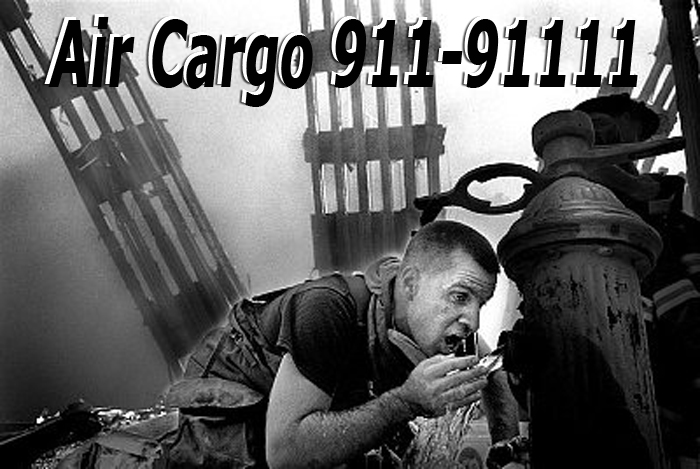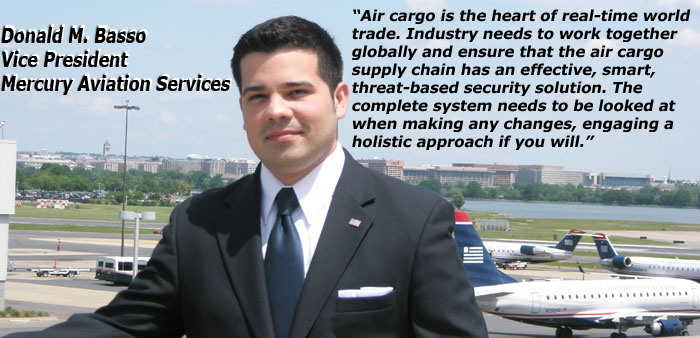

I was just leaving work
at Northrop Grumman in Bethpage, Long Island and heading into Queens.
I heard over the radio that a plane crashed into the first Tower and
was able to see the smoke from the highway. I kept driving toward
Manhattan, stopping at the Brooklyn Bridge, and saw the rest of what
happened. I attempted to get into Manhattan and was unable. I just
stood there with thousands of other people and silently watched from
the Brooklyn Bridge.
I had a lot of close friends and extended
family that worked in all of the buildings, from Architects to Admin,
and almost everyone in my National Guard unit was either in the FDNY
or NYPD. I had a job interview the day before with Deutsche Bank in
Building 4 and my mother was also working as a Special Agent with
the FBI a few blocks away and I couldn’t get in touch with her.
Phones, radio and television were all having issues.
My father was in the hospital. I was
shocked and rushed into Manhattan to see if there was anything I could
do. Traffic was not moving as I approached the bridge to go downtown;
people were walking over the bridge and blocking traffic, pandemonium
on a grand scale. That’s when the first Tower fell; my heart
sunk and none of it seemed real. It seemed as if all of Manhattan
was trying to leave. I was worried about my Mom and my friends, worried
for all of the people that were there. I thought about my newborn
sister and what kind of world she was going to grow up in. I guess
to put it simply a lifetime passed in my mind, but most of all disbelief.
My National Guard Unit got organized
and we headed down the next day to assist with rescue & recovery
operations at Ground Zero. The whole time we were all thinking how
and why did this happen? Everyone wanted answers, but we knew we had
a hugely important job to do.
From a human perspective, everyone in
the business is more aware and alert. We all act as a force multiplier
for those that protect us if we follow the rules and speak up when
we see something that doesn’t add up. You can also see from
the present day by the myriad of acronyms all the changes that have
taken place since 9/11: CCSP, IAC, C-TPAT, CSI, CFI, 10+2, ATS, ACAS,
FAST, etc. and all of those are only from TSA and CBP. I would like
to add that the Yemen incident is going to have a big impact on air
cargo. I am still waiting to see what becomes of that; I don’t
think what has been issued so far is the end of it.
Mercury is in a unique position in that
we are essentially regulated under almost every aviation security
program that TSA issues. We fall under most of them because of the
people we provide service to; Freighters & Passenger Airlines
both foreign and domestic, IAC’s, Shippers, Part 135 Operations,
etc.
So we know cargo security, especially
since we also have the first Independent Cargo Screening Facility
to be certified by TSA. Three members of the AVG Flying Tigers founded
Mercury; because of that, we put a special value on the freedom we
have, for ourselves and for others, and also our name and reputation.
When I say that we go above and beyond what people ask of us, to include
the TSA, I am not speaking lightly. I left the TSA and joined an organization
that is highly professional and diligent, especially when it comes
to security.
Air cargo is the heart of real-time
world trade. Industry needs to work together globally and ensure that
the air cargo supply chain has an effective, smart, threat-based security
solution. The complete system needs to be looked at when making any
changes, engaging a holistic approach if you will. Industry needs
to ensure that their government is doing that and communicating with
other governments. It is amazing the power that organized people wield.
That and follow the rules, be diligent. Remember the purpose of what
it is we do. We cannot afford for our supply chain to be disrupted
for even a moment. Aircraft connect us all together; we have to ensure
that we do the right thing. It really is bigger than just a business.
It is a necessity in our world as we grow bigger and the distances
shrink between trade and us.
Air cargo security is 1000% better now
than it was 10 years ago. Security is a part of all of our lives,
in almost everything we do. I think we have a few areas that we need
to continue to focus on improving international mail movement, all-cargo
operations and the unique commodities that exist. Multiple security
layers will do that, and not stifle trade and the freedom of movement.
Everything should be threat and risked
based; a shipment from Pfizer should be treated differently than a
shipment from an unknown shipper. I am not worried about freight originating
from an Apple warehouse in Cupertino, I am worried about all the other
things that we all know about being directly involved in this business,
things we talk about with each other—those should be addressed.
Immediately.
TSA spends its time responding and putting
out fires. That’s the fundamental difference between being in
enforcement and now being in business. At Mercury, if I have an idea
that makes sense, and it is sound fiscally, then I have the full support
of my leadership. I have the freedom to affect change immediately—forecast
the future and plan accordingly. Unlike my work in government, which
was dictated by the crisis or threat of the day, I can now hedge and
put my money where I think the opportunity for my business is coming,
not so much with Government.
Air Cargo coming in to the U.S. is a
hot topic right now and that is where we are seeing the most inquiries
from outside of the U.S. Domestically, we are working on process improvements
for air carriers and their air cargo operations. We have been leaning
out operations, saving on the bottom line in this economy, with smarter
workflows in warehouses and cargo screening/handling. Also, taking
a look at improving acceptance and recovery processes at warehouses.
Removing double handling and optimizing workflows saves money that
can be spent in other areas.
We need to ensure that everyone has
a voice at the table, and not just depend on them to come forward.
We need to enhance the Security Threat Assessment to make it a formidable
background check, create a standardized training program that is good—allow
businesses to get certified similar to what IATA does, create a certified
shipper program that is robust enough where shippers don’t have
to follow all of the requirements of the CCSP, lean passenger screening
operations that are aged and divert funds to enhanced technologies,
subsidies for equipment and training—especially for small business.
I think there is a lot that I wish for, but you have to go with the
Army you have, not the one you want.
|


